#Islamic empire
Explore tagged Tumblr posts
Text

The world under Islamic conquest and rule. Yet Israel is the occupier. 🤡🤡🤡🤡🤡
#israel#secular-jew#jewish#judaism#israeli#jerusalem#diaspora#secular jew#secularjew#islam#Islamic jihad#samaria#judea#islamic empire
145 notes
·
View notes
Text
Arabian Society in the Middle Ages
Arabian Society in the Middle Ages: Studies From The Thousand and One Nights
https://www.gutenberg.org/ebooks/41110
Author
Lane, Edward William, 1801-1876
Editor
Lane-Poole, Stanley, 1854-1931
Title Arabian Society in the Middle Ages: Studies From The Thousand and One Nights
Language English
LoC Class
DS: History: General and Eastern Hemisphere: Asia
Subject
Egypt -- Social life and customs
Subject
Arabian nights
Subject
Social history -- Medieval, 500-1500
Subject
Islamic Empire -- Social life and customs
Category Text
EBook-No.41110
Release Date Oct 19, 2012
Copyright Status Public domain in the USA.
#egypt#social life and customs#arabian nights#social history#medieval#islamic empire#project gutenberg
6 notes
·
View notes
Text
youtube
#Early Islamic caliphs#Umayyad family#Muslim naval fleet#Sassanid Empire#Unity of the Muslim world#Leadership challenges#Islamic symbols#Caliphate history#Early Islamic leaders#Islamic governance#Muslim conquests#Early Islamic society#Islamic history#Islamic leadership#Islamic conquests#Historical figures in Islam#Islamic civilization#Islamic empire#Muslim rulers#Islamic golden age#lost islamic history#usman#kurulus osman#Muslim world unity#Youtube
0 notes
Text
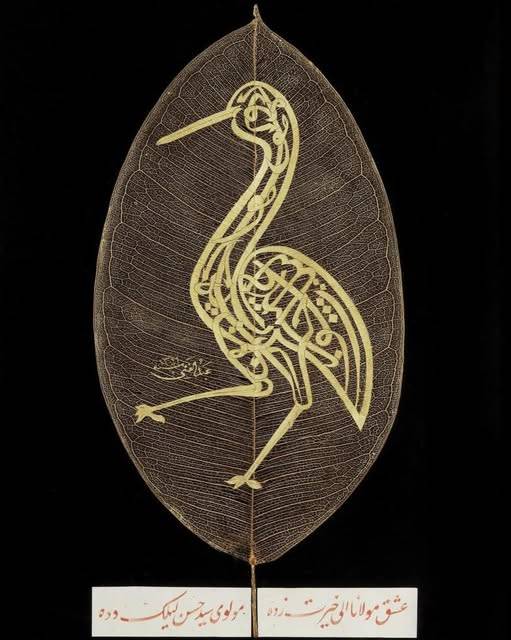
Gold calligraphy on leaf in the form of a stork, the text comprising a Sufi verse, signed Abd al-Ghani. 1893, Ottoman Turkey.
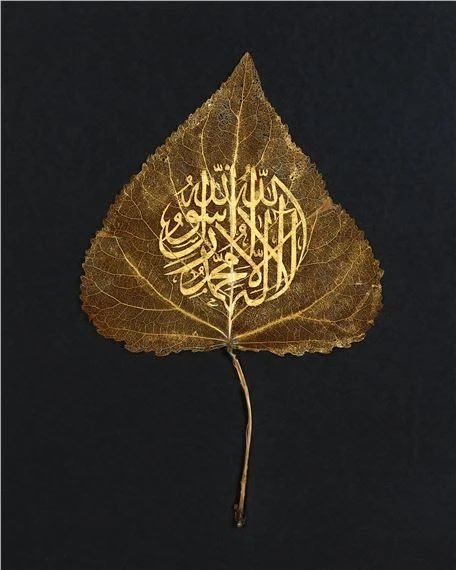
Calligraphy Leaf Ottoman Turkey 19th century, Bismallah in gold.
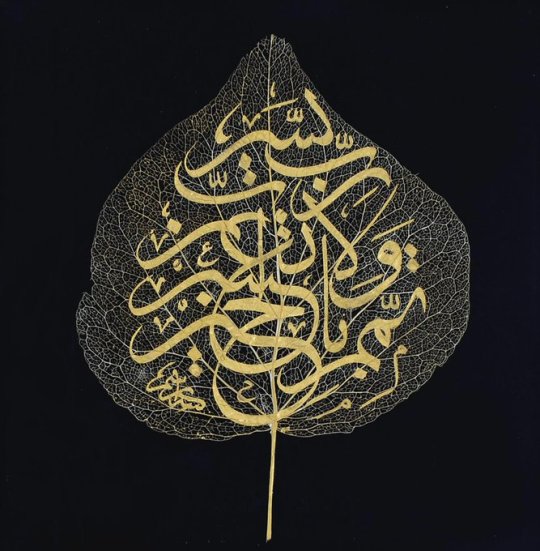
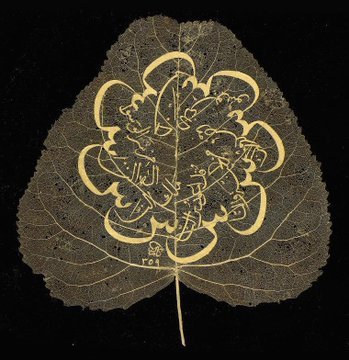
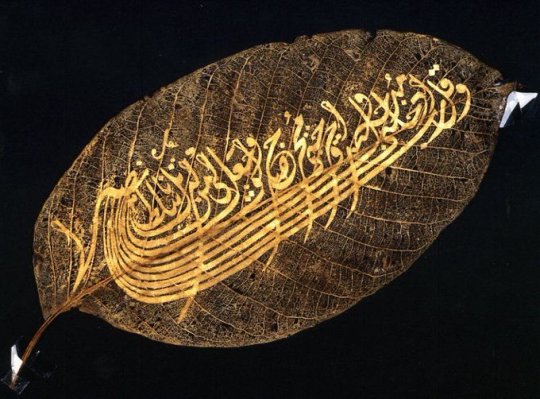
Chestnut leaf inscribed with a Qur’anic verse from Surat al-Isra’ (“The Night Journey,” Q17:80), which reads: “And say, ‘Lord grant me a good entrance and a goodly exit, and sustain me with Your power.”
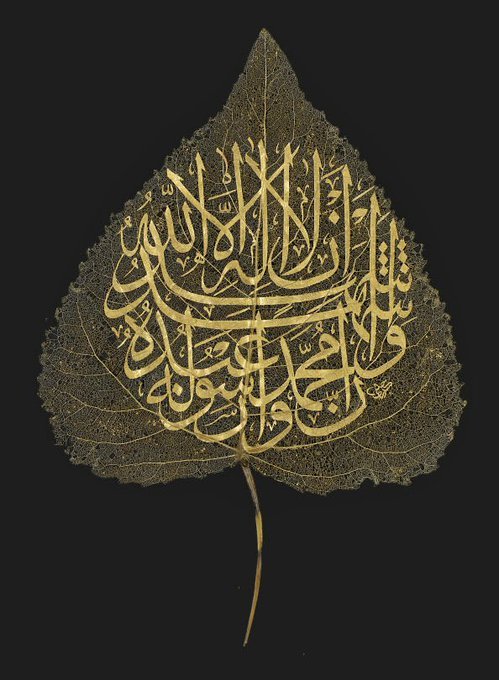
Arabic composition in gold on a natural leaf, the text comprising the Shahadah in intertwining thuluth script.
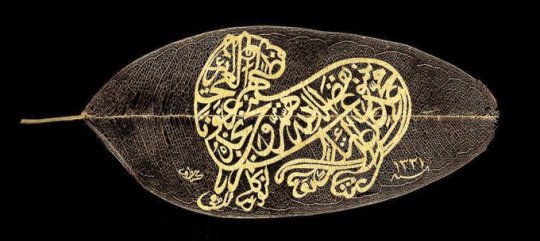
Arabic composition applied on to a natural leaf in gold, the text in the form of a lion incorporating verses praising the Imam 'Ali by al-Sherif al-Murtaza
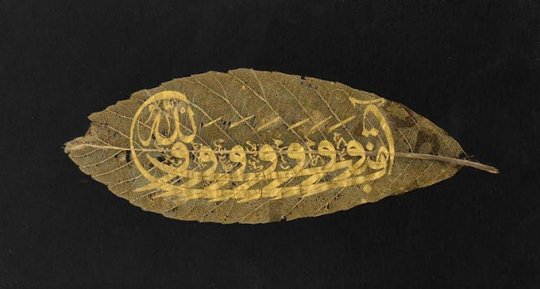
Arabic composition applied onto a natural leaf in gold, the text incorporating the words Allah, Angels, the Prophets, the Day of Judgment in the form of a sailing boat with seven oars, one for each of the Seven Sleepers.
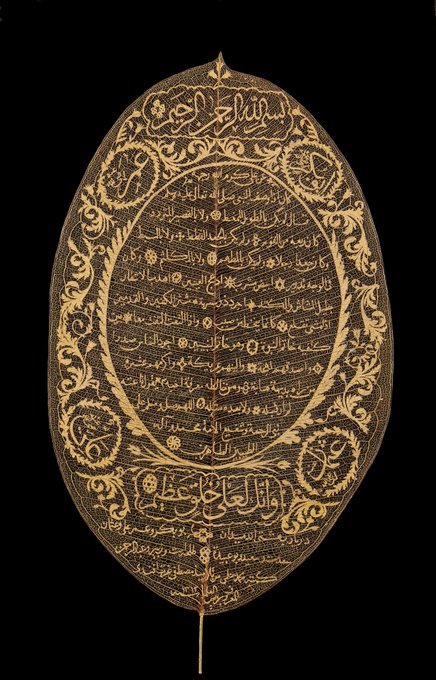
Calligraphic composition in gold on a large natural leaf incorporating the hilyeh, the physical attributes of the Prophet Muhammad (PBUH) signed by Muhammad Helmi, a pupil of Mustafa Izzet Effendi.
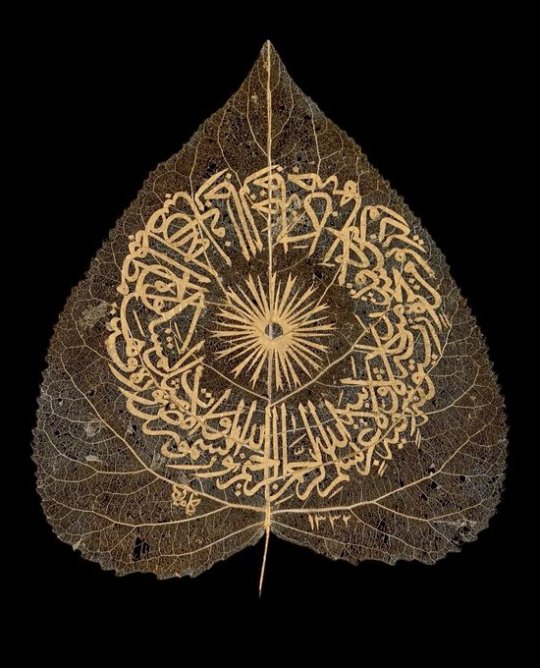
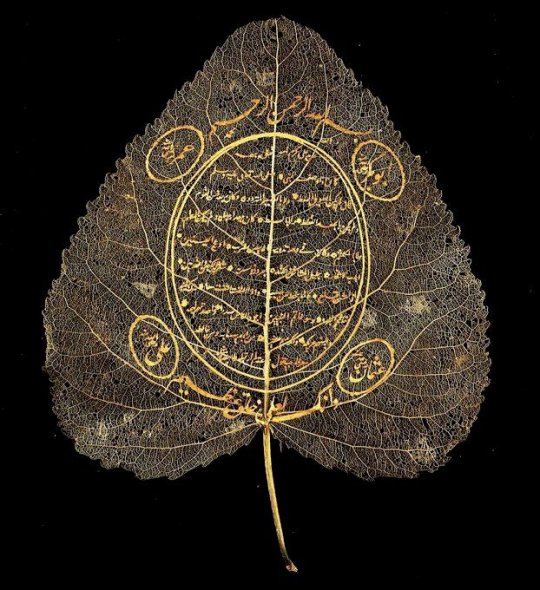
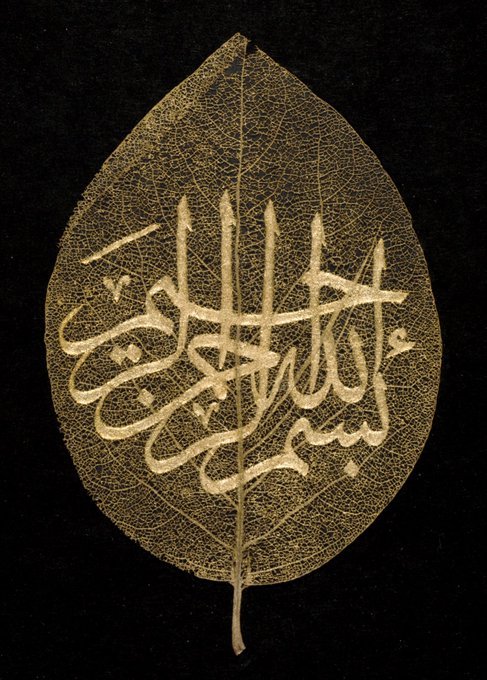
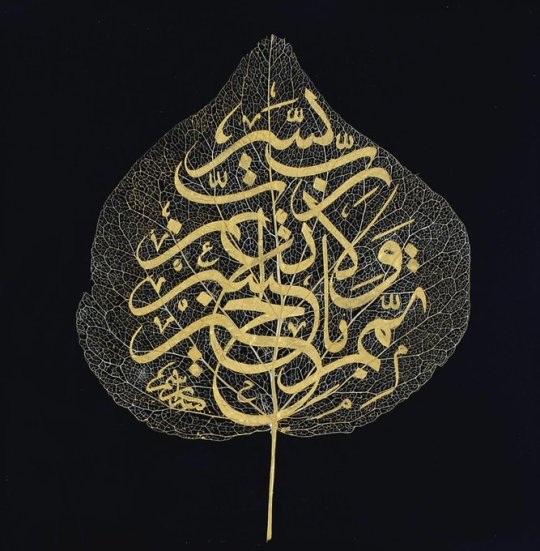
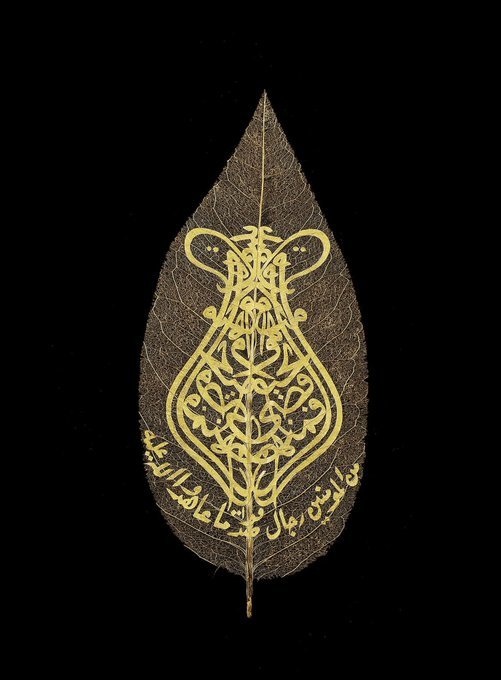
Arabic composition applied in the shape of a vase onto a natural leaf, the text from the Qur'an, surat al-Ahzab, chapter XXXIII, verse 23
Here's the Twitter thread where I found these.
44 notes
·
View notes
Text
Idk who needs to hear this but removing Mughal history from history textbooks completely to the point that the future generations wouldn't even KNOW who the Mughals were, is not the way to go.
You can't just distort history and remove a chunk of it. That's a very biased way of viewing something that actually happened not even 500 years ago. History is not fiction. You can't remove the existence of real people.
When you remove Mughal history, you also remove the good and bad they did. You remove the reason behind the beautiful blend of Indo-Islamic architecture, culture and art we see today, few of the things that have implied towards a sense of harmony amidst the religious chaos that reeked back in the day. But with that, you ALSO remove the massive destruction and looting of thousands of temples, the inhumane measures, laws and punishments they put up against non-Muslims, the struggles and sacrifices of the Hindus and other oppressed groups who protested against these atrocities oh-so-courageously. You remove their cries, their brave stories. You remove the valiant fights Shivaji, Maharana Pratap and their likes put up against these people. You remove the martyrs of the several genocides these guys (especially Babur) caused. You remove them all, because once there's no Mughals, who did these brave souls fight against?
Also why only Mughals? What about the Khaljis, Mamluks, Tughlaqs, Ghaznis and others? They committed way worse atrocities than the Mughals did tbh. So with that logic all of their histories should be wiped out? But that's almost like a 700-800-year-history-wipeout we're talking about (the dates might not be accurate). And that's not how it works.
Here's a better idea. Just... show their good and their bad, and just don't glorify them and their tyranny. We keep the struggles and the sour lives the suppressed groups lived under the rule of these dynasties, and maybe glorify the brave souls who fought selflessly against them. We show how they plundered any place of worship that wasn't a mosque (or Islamic in general), and treated the idols of these religions post-destruction. We can also include the non-Islamic kingdoms and kingdoms that stood still and strong despite the invasions, like the many Hindu kingdoms in the south, then the Ahom dynasty and a few other small kingdoms in the northeast, etc. We can bring lesser-known and highly underrated non-Islamic kingdoms into light too in this process, and how they dealt with these invaders. (Half of these points are already depicted in the existing textbooks, or... atleast the textbooks *I* studied back in school, but I think they get kinda overshadowed by the subtle glorification of these invaders)
These are the solutions I'd provide. If anyone has anything to add, please do, or if yall have better solutions, pls lmk. But removing a huge chunk of history just out of pure hate and revenge like this is NOT the way to go about in the field of history LMFAO. It's the same as how that one biased historian recently claimed that no Hindu temples were destroyed by the Islamic invaders.
#keep the conversation civil btw cuz i dont wanna fight with anyone#mughal empire#ncert#cbse#cbseboard#hindublr#mughal invasion#mughal dynasty#desiblr#desiposting#desi tumblr#desi tag#islamic invaders#islamic invasion
193 notes
·
View notes
Text

The Battle of Zenta 1697 by Karl von Blaas
#karl von blaas#art#battle of zenta#habsburg monarchy#ottoman empire#holy roman empire#eugene of savoy#prince eugene#mustafa ii#europe#european#history#great turkish war#hungary#holy league#turkish#austrian#habsburg#senta#zenta#austria#ottomans#ottoman#turks#christian#muslim#christianity#islam#prince eugene of savoy#serbia
41 notes
·
View notes
Text

Ghaznavid sultan Mahmud (r. 998-1030 CE) and his forces attacking the fortress of Zaranj in 1003 CE. Jami al-Tawarikh, 1314 CE. Jāmiʿ al-Tawārīkh (lit. 'The Compendium of Chronicles') is a work of literature and history, produced in the Mongol Ilkhanate. Written by Rashid al-Din Hamadani (1247–1318 CE) at the start of the 14th century, the breadth of coverage of the work has caused it to be called "the first world history". It was in three volumes and published in Arabic and Persian versions.
#arabic#arabic literature#calligraphy#ghazni#afghanistan#persia#persian history#persian art#iran#iran history#iran art#ancien tiran#medieval#middle ages#medieval art#illuminated manuscript#miniature painting#ilkhanate#mongol#mongol history#mongol empire#turkish#turkish history#islamic#islamic history#islamic art
21 notes
·
View notes
Text

This resulted in revolutionary achievements and advancements in art, sciences and architecture. Many are still used today. • In the Ottoman Schools, every child was evaluated due to his/her talents and every child had different courses. The beautiful motto of the schools which was written as grafitti on the walls was: “Here no Fish will be forced to fly and no Bird will be forced to swim.” #OttomanEmpire • 🤲🏻 share for a good deed 🤲🏻 Follow @justmakeduaa ❤️ • • #justmakeduaa • #duaa #islamicquotes #islamicquote #islamicreminders #islamicreminder #islamichistory #islamicpost #islamicposts #islamicpost #muslimandproud #2025 #deenoverdunya #deenquotes #bayarea • #ottoman #ottomanempire #ottomans #ottomanhistory #muslim
#islamicart#islamic knowledge#islam#allah#muslim#islamquotes#quran#subhanallah#islamic#ottoman#ottoman empire#ottoman history
26 notes
·
View notes
Photo

Islamization of the Eastern Black Sea (East Pontic) Region / Population Change from the Beginning of the 16th Century to the End of the 17th Century
by bilalselim/reddit
39 notes
·
View notes
Photo

Persian Warrior Gloves, possibly from Safavid Dynasty in the 1500s.
388 notes
·
View notes
Text

Another Marbled Monday, lining the boards on Isl. Ms. 382 (copied 1768) a manuscript copy of Tarih-i İzzi (تاريخ عزي) --- official Ottoman history covering the years 1157-1165 (1744-1752) composed by official historiographer Süleymân İzzî (d.1755)
Browse the description and images of the entire manuscript online!
#marbled monday#marbled paper#marbled#marbling#paper marbling#libraries#archives#special collections#special collections libraries#libraries and archives#special collections and archives#islamic arts#islamic manuscripts#ebru#ebrusanatı#ottoman manuscripts#yazmalar#el yazma#yazma eserler#manuscript culture#ottoman culture#ottoman history#ottoman art#ottoman empire#المخطوطات#المخطوطات الاسلامية#المخطوطات العثمانية#آبرو#آبرو باد#ابر و باد
14 notes
·
View notes
Text
Did ancient Palestinians (who were European Aegeans/Greeks) speak English and Hebrew? These manhole covers are not only English, and not only have Hebrew writing (no Arabic), but they also have the sign of the Volkan Company, which was a metal factory established by Judeans.

The cover also has the sign of the Volkan company, a metal factory established by Judeans in the 1930s.

#israel#secular-jew#jewish#judaism#israeli#jerusalem#diaspora#secular jew#secularjew#islam#british mandate#ottoman empire#Palestine#judea#Samaria
52 notes
·
View notes
Text

AUTUMN 2024 Issue [out soon]: Sneak preview of the latest cover ANTIQVVS Magazine: https://www.antiqvvs-magazine.com
#antiqvvs#antiqvvs magazine#autumn#issue#publication#periodical#magazine#journal#article#spain#italy#roman empire#wales#islam#islamic#moorish#etruscan#roman#ancient architecture#ancient art#archaeology#ancient#antiquity#culture#civilization#heritage#history#art history#architecture#antiquities
13 notes
·
View notes
Text
Stephen Shoemaker has talked at length about the eschatological nature of early Islam in other books and articles; he makes some very interesting points in The Apocalypse of Empire (which is not just about Islam, although it discusses Islam at length in two chapters), synthesizing some points made by other scholars.
Scholarly trend to view Islam as a movement that was from the beginning pragmatic, not apocalyptic. Other scholars try to portray Muhammad as basically a national unifier/Arab empire-builder, with religion as a tool secondary to this aim. This seems to amount to not taking early Islam as it portrays itself very seriously, and indeed in some cases seems to be almost an apologetic project to try to help make early Islam more relevant to the present day.
Snouck Hurgronje(sp?) argued that early Muslims saw Muhammad's appearance itself as a sign the end of the world was at hand, and that Muhammad would not die before its arrival. He and other scholars after him saw other elements of his message as more or less accessories to his concern with the impending end of the world.
Projects of empire-building and apocalypticism are not necessarily opposed! The rest of this book furnishes examples from Byzantium, Rome, Zoroastrianism. For a contemporary example, we might look at ISIS. It was relatively common in the ancient near east to think the eschaton would be realized through imperial triumph, and that the end of history was imminent. Indeed, Muhammad's religious beliefs probably played a significant role in the dynamism and success of his nascent polity.
Later Islamic tradition like the biographies deemphasized the urgent apocalypticism (again, not unlike Christianity!). But the Quran is rife with warnings of impending judgement and destruction ("the Hour"), and incorporates Christian apocalyptic material like the parable of the rich fool from Luke. Shoemaker furnishes lots of quotes like "The matter of the Hour is as a twinkling of the eye, or nearer," and "The Lord's judgement is about to fall," etc. Astronomical events will predict the Hour's arrival; doubters will soon be proved wrong, etc.
Perspectives from the New Testament help us understand why different passages portray the urgency of the Hour differently; the historical Jesus probably preached an imminent apocalypse, but the Gospels were compiled later, so they can be more ambivalent. Likewise later Muslims, when compiling the Quran, would have to deal with the fact that the "urgent" end of the world hadn't arrived yet; though the strong eschatological perspective persisted (as it did in Christianity, too), there was an effort to try to moderate some of these embarrassing passages.
Some early hadith and other early traditions corroborate the impending eschaton, emphasizing the link between his appearance and the end of the world. "According to another tradition, Muhammad offered his followers a promise (reminiscent of Matt. 16:28, 24:34) that the Hour would arrive before some of his initial followers died. In yet another tradition, Muhammad responds to questions about the Hour’s timing by pointing to the youngest man in the crowd and declaring that 'if this young man lives, the Hour will arrive before he reaches old age.'"
Donner argues the conquests were an effort to establish an interconfessional "community of the Believers" that included Jews and Christians, requiring only belief in God and the last day. According to him, Muhammad and his earliest followers didn't even think of themselves as a separate religion; rather, their earliest community was a loose confederation of Abrahamic monotheists who shared Muhammad's apocalyptic aoutlook, and who were trying to establish a righteous kingdom in preparation for the end. Cf. the Constitution of Medina, which seems to be a very early source. It has a dramatic discontinuity with the ethnic and religious boundaries established in later Islam. Traditionally held to be a brief experiment that ended with Muhammed expelling the Jews from Medina, Donner argues that in fact Muhammad's community remained confessionally diverse for decades, including Jews and Christians into the Umayyad period. Indeed, a lot of their early successes may have been aided by their nonsectarian outlook.
Only under Abd al-Malik(!) does Islam begin to consolidate, and a new Arab ethnic identity crystallizes that distinguishes Muslims from outsiders they ruled.
In variant readings of the Quran we can glimpse a view not unlike that of the early Christians, where the Kingdom of God had its inception in Jesus's works; here, the conquests of the early followers of Muhammad are part of an the initiation of the end times. Muhammad is the "seal of the prophets" in this reading because the world is about to end.
So the picture that emerges from all this is that Muhammad was an apocalyptic preacher and reformer, very much like Jesus, who wasn't aiming to found a new religion necessarily. But he preached that the world was ending, and as part of his preaching on this subject he led the creation and rapid expansion of a new polity meant to unite the community of believers. Only once he died, and the world failed to end, and his followers had to consolidate their gains and transform them into an actual, durable state did a coherent scripture (the Quran) and a coherent religious identity (Islam) emerge, both strongly affected by the new social, cultural, and political contexts his followers found themselves in. The turning point seems to be the reign of Abd al-Malik, around fifty years after the death of Muhammad, when the oral traditions of the original community of believers are approaching their expiry date, and a new generation (and new converts) need a worldview and a political system that is relevant to their present circumstances. This is extremely comparable to the transition from early Jesus-traditions to the Gospels finally being written down in the second century, when the last people who knew Jesus directly, or who knew the Apostles directly, were dying, and the community had to transition to a form that could survive indefinitely, or else be forgotten.
72 notes
·
View notes
Text
everyone who's a late roman republic or french revolution head needs to also hop on the late medieval early modern central and south asian political drama train 😓😓im so alone (on tumblr that is)
#roman republic#late roman republic#frevblr#frev#french revolution#sorry for pranking you guys in the tags ❤️#we have gay persianate textile arts.. ooh ahh...#mughal empire#maratha confederacy#nayaka states#central asian history#south asian history#medieval persia#islamic history#persian miniature painting#indian miniature painting#history#some of you guys would love gayvestigating mughal politicians#go yaoify banarsidas NOW!
17 notes
·
View notes
Text
Coin of the Day #273 (2/1/2025)
Ottoman silver…


Ottoman Empire
AR Onluk - 18mm 2.26g
Mustafa I 2nd Reign 1031 AH (1622 AD)
Uncertain Mint
Album 1365
8 notes
·
View notes